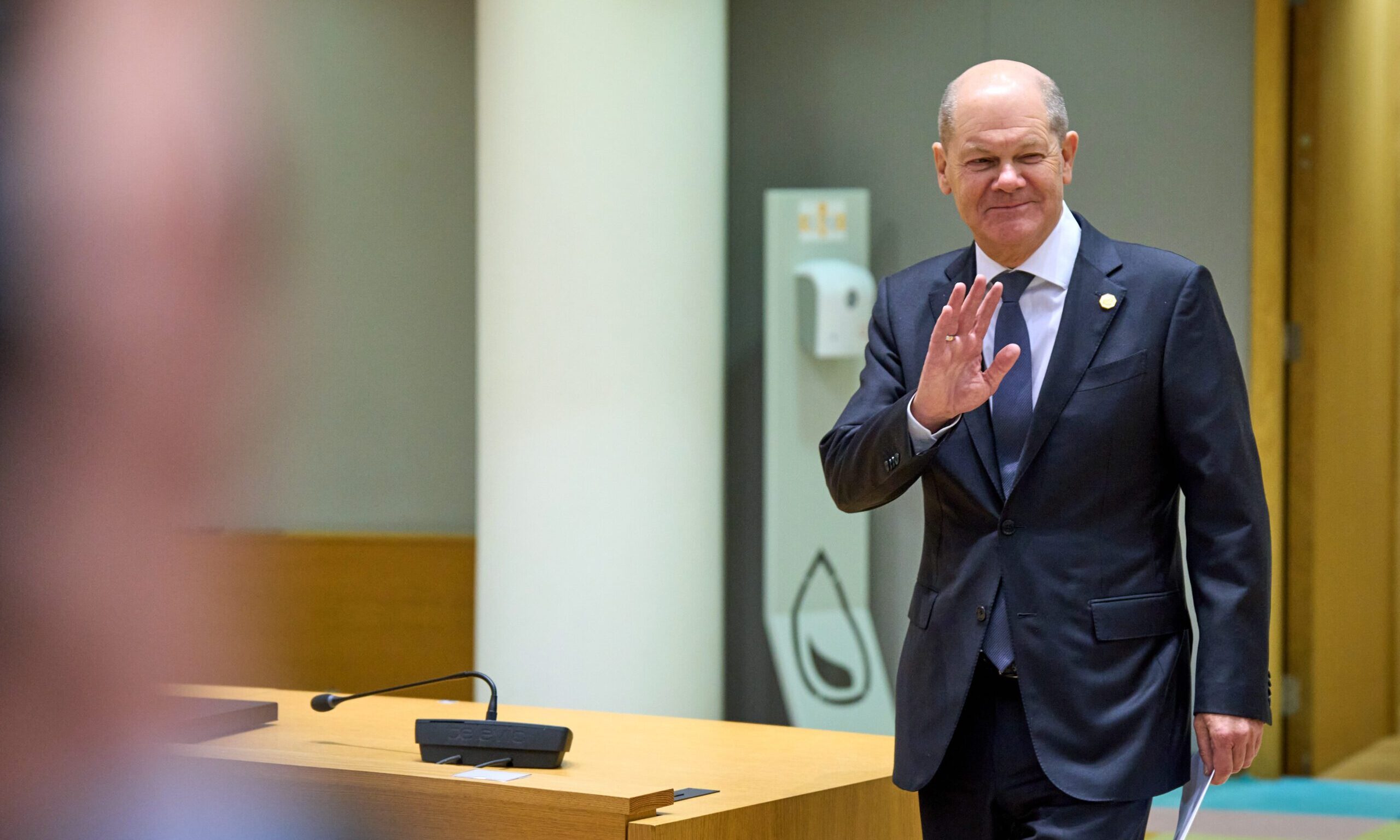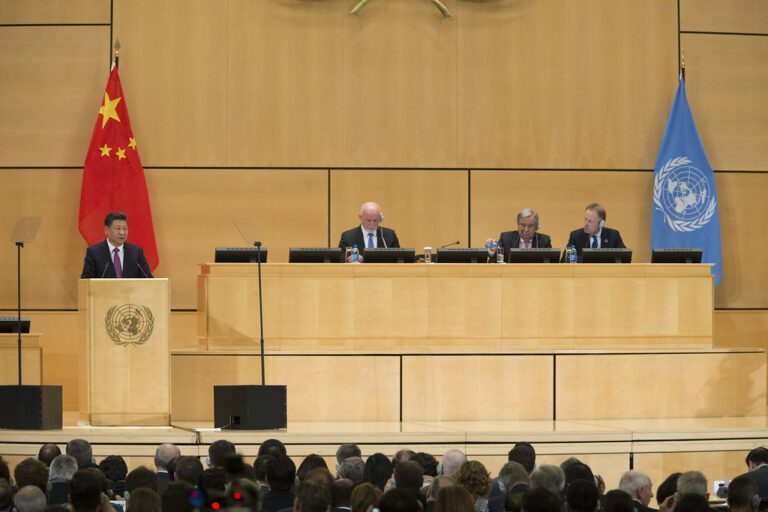
November 7, 2024 will be remembered globally as the day Donald J. Trump secured his second term as President of the United States. For Europe – and especially for Germany – it also marks the collapse of the “Ampelkoalition” (Traffic Light Coalition), Germany’s once-promising but increasingly controversial government alliance. While Trump’s reelection carries significant implications for Germany’s policy toward China, the upheaval in Berlin adds a new layer of uncertainty at a challenging moment. This article unpacks how these recent developments could shape Germany’s future stance on China.
The “Ampelkoalition” and China
The “Ampelkoalition” emerged as Germany’s new governing alliance after the 2021 federal elections. Following over 15 years under Angela Merkel, the center-right Christian Democratic Union (CDU) faced its first election without her. Merkel’s chosen successor, Armin Laschet – the former Minister-President of North Rhine-Westphalia and a close ally – led the CDU into the election but failed to maintain its status as the strongest party in the Bundestag. The Social Democratic Party (SPD), led by former Hamburg Mayor Olaf Scholz, secured the lead. Scholz then formed a coalition government with the environmentalist Green Party and the liberal Free Democratic Party (FDP).
The start of the Scholz administration brought optimism. The new government, calling itself the “Zukunftskoalition” (Coalition for the Future), pledged to modernize Germany. Annalena Baerbock of the Green Party took the helm as foreign minister, signaling a shift toward a more values-driven foreign policy, in contrast to the previous emphasis on economic engagement – often termed “checkbook diplomacy.” Baerbock’s leadership introduced a “feminist foreign policy” framework, prioritizing human rights, democratic principles, and gender equality, particularly in relations with authoritarian states like China. She stressed the importance of Europe learning from past mistakes by reducing its economic dependency on China. In 2021, for the first time since 1949, Germany outlined its security interests, and strategic approach to China, each in a dedicated document.
In recent years, Berlin has faced criticism for its cautious approach to de-risking from China, with Germany lagging behind Western allies like the United States and some Central European states in adopting a firmer stance on Beijing. German investments in China have continued to grow, and the much-discussed economic pivot toward Southeast Asia remains more of a political ambition than an economic reality. Nevertheless, Germany has begun to leave behind the “honeymoon phase” with China. The Merkel-era optimism has faded, replaced by a more cautious and pragmatic view.
With the collapse of the “Ampelkoalition” government, questions arise about the future trajectory of Germany’s China policy. Will this recalibrated approach persist, or could it be reconsidered under new leadership?
Germany’s Government Undone
On the evening of November 7, government spokesperson Steffen Hebestreit announced that Chancellor Olaf Scholz had dismissed Finance Minister Christian Lindner, effectively removing the FDP from the coalition. This decision leaves the remaining coalition of the SPD and Greens without a majority in the Bundestag. Rumors of a coalition breakdown had circulated for weeks, fueled by foreign policy tensions and domestic economic challenges. As Germany stands at a political crossroads, three scenarios seem possible.
First, Scholz could attempt to form a new coalition government. However, this would likely require collaboration with the center-right CDU, currently led by Friedrich Merz, which has reportedly ruled out this option. Second, the SPD and Greens could proceed as a minority government, relying on CDU support for any legislative agenda – a scenario that appears equally unlikely. The third and most probable outcome is a new federal election, a prospect appealing to the CDU, which currently leads in the polls. Scholz has already announced a confidence vote in the Bundestag on January 15, which he is expected to lose. Should this occur, the German President would call federal elections, likely to take place in late March. In recent developments, Friedrich Merz, the leader of the CDU, has called for an expedited timeline for the confidence vote in the Bundestag, conditioning the CDU’s cooperation with the remaining coalition government on urgent policy matters on advancing the vote.
Who’s Next?
Assuming Germany heads to federal elections early next year, as many observers predict, the results are likely to bring about a new government and potentially a new chancellor. With the SPD and Greens currently polling at a combined 25 percent and the FDP below the 5 percent threshold required for Bundestag representation, the political landscape appears increasingly favorable for Friedrich Merz’s CDU, which is polling above 30 percent, positioning him as a strong contender for chancellor. However, the far-right Alternative for Germany (AfD) is polling above 15 percent, and the populist, economically left-wing, socially conservative BSW (Bündnis Sahra Wagenknecht) is polling between 5 percent and 10 percent.
In theory, neither the SPD, Greens, nor the CDU are inclined to form a coalition with the AfD or BSW at the federal level. The CDU has upheld a “Brandmauer” (firewall) against the AfD. However, cracks in this barrier have begun to appear. In recent state elections in Thuringia and Saxony, the CDU and SPD engaged in coalition talks with the BSW, although these discussions have not yielded positive results yet. Additionally, the CDU and AfD are currently exploring possibilities for cooperation in Saxony.
With approximately 20-25 percent of the German electorate currently supporting the populist AfD and BSW, understanding these parties’ positions on foreign policy – especially regarding China – is essential. The AfD has adopted a notably pro-China stance, advocating for stronger economic ties and a balanced approach to geopolitical matters. Alice Weidel, co-chair of the AfD, has attracted attention in China for her favorable stance toward the country. Similarly, the BSW promotes a pragmatic, cooperative approach, viewing China as Germany’s most critical economic partner. BSW opposes the government’s decoupling and de-risking strategies, warning that such policies may heighten global tensions and harm Germany’s economic interests. Sahra Wagenknecht, the party’s leader, has previously praised China’s economic model as exemplary for national economic management.
While an AfD or BSW participation in federal government remains unlikely, these parties represent a significant and growing opposition to Germany’s current China policy. More influential, however, will be Merz and the CDU. Historically, particularly under Merkel, the CDU has been “soft on China,” prioritizing economic interests over Western values and security concerns. Recently, though, Merz has distanced the party from its rather China-friendly stance of the Merkel era, even taking a tougher position on China than current Chancellor Scholz. With the CDU’s traditionally close alignment with the United States, a Chancellor Merz might be more inclined than Scholz to align with the US in its economic rivalry with China.
However, even if the CDU performs strongly in upcoming elections, Merz will likely need at least one coalition partner to form a government. Realistically, his choices are limited to either the SPD and/or the Greens, neither of which is particularly appealing to him. Nonetheless, a CDU-Green coalition might adopt a firmer stance on China than a CDU-SPD coalition, which could resemble the softer approach of the Merkel era. Whoever is poised to lead Germany next will also face Donald Trump as their most important ally in Washington.
Trump Re-elected
Donald Trump’s re-election as the 47th President of the United States has been labeled a nightmare for Germany. Trump’s proposed 60 percent tariff on Chinese imports could strain the US-China trade relationship, likely prompting China to retaliate with tariffs on US and allied exports. For Germany, a close trading partner to both the US and China, this could spell trouble, as any escalation in US-China trade tensions could disrupt global supply chains and increase the cost of materials. German manufacturing industries – especially automotive and pharmaceuticals – would be doubly hit, as they would face US tariffs on exports while potentially paying more for Chinese components affected by new tariffs. The ifo Institute cautions that this could spiral into a trade war, making it even harder for Germany to navigate between two of its major trading partners in a strained global economy.
The collapse of the “Ampelkoalition” government has plunged Germany’s China policy into uncharted waters at a critical juncture. As Chancellor Scholz faces a likely vote of no confidence, and the prospect of new elections looms, the direction of Germany’s engagement with China is at stake. With the CDU and Greens poised as potential power players, a shift toward a firmer stance on China might be on the horizon. Yet, Trump’s re-election further complicates matters, heightening the stakes for Germany as it navigates between major trading partners in a rapidly shifting geopolitical landscape.
Written by
Tim Hildebrandt
Tim Hildebrandt is a Ph.D. candidate in political science and economics at the University of Duisburg-Essen and a Research Associate at the Ruhr West University of Applied Sciences. His research focuses on the intersection of politics, economics, and geography.


